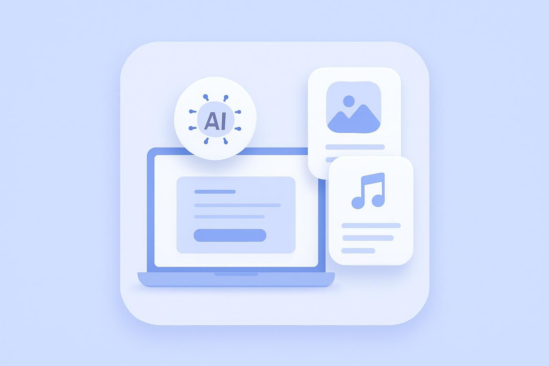
Key Takeaways
- Data-based brokers use structured guidelines and curated info to make logical, clear choices.
- Their core parts embrace a information base, inference engine, and adaptive studying, permitting them to cause, replace, and act primarily based on evolving information and person inputs.
- In comparison with machine studying and generative AI, knowledge-based brokers excel in regulated, logic-driven duties the place interpretability is essential.
- Jotform AI Brokers exemplify knowledge-based automation, combining rule-based logic with machine studying to automate duties successfully.
- The way forward for knowledge-based AI consists of hybrid fashions, moral compliance, and enterprise integration, making these brokers more and more highly effective in clever automation.
Data-based AI brokers are specialised methods that retailer, course of, and retrieve structured info to simulate human experience. In contrast to AI models that depend on large datasets and statistical patterns, these brokers use curated information to make choices in real-world eventualities. In consequence, a knowledge-based agent’s resolution may be traced again to an outlined algorithm and data, which makes it simpler for organizations to take care of compliance. Plus, these brokers are nice at dealing with domain-specific duties, from automating approval workflows to diagnosing technical points.
By utilizing cognitive computing rules, knowledge-based brokers don’t simply comply with static guidelines — they study and adapt over time. They refine their responses as they collect extra information, steadily making them extra correct and environment friendly. Although trendy knowledge-based brokers construct on early knowledgeable methods, additionally they incorporate superior inference engines and adaptive studying methods.
On this put up, we’ll take a deep dive into how these brokers perform and their core parts and the way Jotform AI Agents implement these rules.
How do knowledge-based brokers work?
Data base system
On the core of any knowledge-based agent is a structured information base system. This repository comprises info, guidelines, and logic that information the agent’s reasoning. Relying on the standard and group of this data, the agent can reply extra precisely to person queries. When new info arrives, the system makes use of three key operations:
- TELL: Provides new information or guidelines to the information base, ensuring the agent’s repository stays present
- ASK: Queries the information base, extracting related info or guidelines to deal with a state of affairs
- PERFORM: Executes an motion or resolution primarily based on what the agent has inferred
Right here’s an instance of how a knowledge-based telecom assist agent may use these operations in a typical workflow:
- A buyer asks, “How do I reset my router?”
- The ASK operation queries the information base for router reset directions.
- The inference engine retrieves and constructions a step-by-step response.
- If the router mannequin is exclusive and lacking from the database, the agent updates the information base to enhance future responses.
- The shopper receives an prompt, correct answer.
Inference engine
A knowledge-based agent depends on an inference engine to interpret info saved in that information base and attain logical conclusions. Performing because the agent’s “mind,” the inference engine processes the information base to return to conclusions. It makes use of logical reasoning methods resembling:
- Ahead chaining: Ranging from identified info to find out outcomes
- Backward chaining: Working backward from a purpose to search out supporting info
By utilizing these strategies, the inference engine can deal with uncertainty, weigh possible outcomes, and generate logical responses. For instance, if a coverage states, “All new hires should full type X,” and the agent detects a brand new worker report, it robotically triggers a request for type X.
Adaptive studying
Trendy knowledge-based brokers use adaptive studying to refine and increase their rule units. Over time, they establish recurring questions or patterns and replace the information base robotically. This makes for fixed enchancment and extra correct responses.
Strengths of knowledge-based brokers
As a result of these brokers comply with express guidelines, their decision-making course of is clear. If a call appears incorrect, you’ll be able to hint it again to a particular rule — not like black box machine studying fashions, whose choices usually can’t be defined.
One other power of knowledge-based brokers is adaptability. They’ll replace their information base with new information as circumstances change. If conflicting guidelines come up, the system flags them for human evaluate or automated decision, ensuring that choices stay correct over time.
Think about a logistics firm utilizing a knowledge-based agent to handle transport. The agent references saved guidelines on routes, transport charges, and customs rules to find out the best choice for a brand new cargo. A workforce member updates the information base utilizing TELL if a brand new software is launched to make certain that future choices replicate the most recent rules.
Such a structured method retains operations environment friendly, compliant, and attentive to real-world modifications.
Data-based brokers vs different AI approaches
AI is available in many types, from machine studying to generative AI. Right here, we’ll evaluate knowledge-based brokers with different widespread AI instruments:
| Data-based brokers | Machine studying fashions | Generative AI | |
|---|---|---|---|
| Core perform | Structured decision-making | Sample recognition | AI-generated content material |
| Adaptability | Learns from inference | Learns from information | Learns from context |
| Finest use case | Professional methods, automation | Predictive analytics | Content material creation, pure language processing |
Selecting an AI mannequin in the end is determined by your particular wants. Data-based brokers use clear, rule-based logic, making them splendid for regulated or rule-heavy processes. Data-based brokers are your finest wager in case you’re on the lookout for interpretability and structured logic.
Then again, machine studying fashions are nice for large-scale information predictions, resembling buyer segmentation or fraud detection, and generative AI focuses on creating new content material, like textual content or photos, usually for artistic or communication functions. Machine studying or generative AI may be extra becoming in case you want insights from large datasets or artistic outputs.
Some organizations even discover hybrid options, mixing knowledge-based brokers with different AI tools. For instance, an e-commerce platform may use a knowledge-based agent to make sure compliance with fee rules whereas a machine studying mannequin predicts stock demand. This enables companies to get pleasure from one of the best components of every method.
Jotform AI Brokers: Reworking knowledge-based AI
Jotform is understood for its versatile form-building platform and gives forward-thinking AI instruments, together with Jotform AI Agents. AI Brokers mix rule-based logic with adaptive machine studying to centralize industry-specific information, making them a strong automation software. For instance, an AI Agent can handle 1000’s of assist tickets each day, referencing an ever-expanding information base to resolve points shortly. Over time, it refines its method, enhancing workflows, decreasing the necessity for handbook intervention, and sustaining real-time resolution accuracy.
Among the key options of AI Brokers embrace:
- Multichannel support: AI Brokers can help customers via a number of channels, together with web site chatbots, cellphone, SMS, WhatsApp, or QR Codes, guaranteeing seamless interactions.
- Live chat: AI-powered chatbots can present real-time help and easily
- Voice agent: AI-powered voice assistants can perceive buyer inquiries and supply pure, prompt responses through net calls.
- Actions: AI Brokers can particular responses primarily based on dialog context, resembling requesting an electronic mail in the beginning of a chat or prioritizing VIP clients.
Jotform AI Brokers additionally illustrate completely how knowledge-based automation is effective throughout quite a lot of industries:
- Healthcare: Automate affected person consumption, schedule appointments, and supply medical steerage
- Finance: Help clients by answering queries, offering account particulars, and streamlining monetary transactions
- Education: Handle scholar enrollments, share course schedules, and supply tutorial help
- E-commerce: Provide product suggestions, monitor orders, and deal with buyer inquiries effectively
The way forward for knowledge-based AI
Right this moment, knowledge-based AI improves decision-making by being each clear and dependable. As AI advances, knowledge-based fashions will stay important for duties that require belief and interpretability. Nonetheless, additionally they pave the way in which for hybrid options that mix rule-based logic with machine studying, increasing AI’s capabilities even additional.
1. Hybrid AI fashions: Combining logic and studying
Conventional rule-based AI methods are nice at structured reasoning, whereas deep studying fashions excel at sample recognition. The long run is in mixing these approaches into hybrid AI fashions which can be each correct and explainable. For instance, a authorized AI assistant may use deep studying to research 1000’s of case information whereas making use of rule-based reasoning to align its suggestions with authorized precedents. This fusion would improve transparency — a key issue for compliance and enterprise belief.
2. Area-specific ontologies: AI as an {industry} knowledgeable
Data-based AI depends on structured area information. Sooner or later, companies will develop extra specialised ontologies — personalized information graphs and rule-based methods — to fine-tune AI for his or her industries. AI may combine medical ontologies to assist docs diagnose uncommon circumstances in healthcare. In finance, fraud may be detected by reasoning over transaction patterns. These tailor-made information bases will elevate AI from basic assistants to true {industry} specialists.
3. Expanded cognitive computing: A extra intuitive person expertise
Advances in pure language processing (NLP) will refine how customers work together with AI. In contrast to inflexible chatbots, future AI methods will assist seamless, context-aware conversations with clear and justifiable responses. This will probably be a game-changer in buyer assist, enterprise search, and authorized advisory purposes, the place it’s important to be each exact and clear.
4. Ethics and compliance: Constructed-in accountability
As AI rules evolve across the globe, transparency and accountability will develop into non-negotiable. In contrast to black-box machine studying fashions, knowledge-based AI gives traceable logic and rule-based reasoning, making it a beautiful selection for compliance-heavy industries resembling finance, healthcare, and authorities. AI methods that may clarify their choices in human-readable codecs could have a aggressive edge in regulated environments the place belief and auditability are important.
It’s additionally necessary to notice the rise of AI governance. Governments worldwide are introducing pointers requiring AI methods to be interpretable and truthful. Data-based brokers naturally align with these pointers as a result of they function on express, trackable guidelines. Firms trying to future-proof their operations could lean towards methods which have built-in accountability and transparency.
5. Integration with enterprise methods: A brand new degree of automation
The way forward for knowledge-based AI isn’t just about reasoning — it’s additionally about motion. These clever brokers will streamline enterprise operations by integrating with software program resembling customer relationship management (CRM), enterprise resource planning (ERP), and workflow automation instruments. Think about an AI that not solely recommends the right provider for a producing order but in addition initiates procurement requests, tracks deliveries, and ensures compliance with contract phrases. Such an automation may considerably scale back operational inefficiencies and human errors.
How knowledge-based AI brokers can be just right for you
Data-based AI brokers stand out for his or her transparency and reliability, making them splendid for industries the place accountability is nonnegotiable. In a time when AI is usually criticized as a “black field,” knowledge-based brokers present much-needed transparency. With common updates, they keep adaptable, permitting for smarter real-time choices. Jotform AI Agents embody these rules, providing companies clever automation powered by structured guidelines and seamless information integration.
The takeaway? Data-based AI brokers provide a sensible, human-friendly method to automation. Their structured reasoning, real-time adaptability, and readability make them a robust selection for companies trying to optimize operations with out sacrificing oversight. As hybrid AI evolves, these brokers will solely develop into extra highly effective, delivering one of the best of each rule-based logic and data-driven intelligence.
Regularly requested questions
1. How do knowledge-based brokers differ from conventional machine studying?
Data-based brokers depend on express guidelines and structured information bases for decision-making, whereas conventional machine studying fashions rely on sample recognition in massive datasets. This implies knowledge-based brokers provide extra transparency however could require extra upfront work to encode domain-specific guidelines.
2. Can knowledge-based brokers deal with unstructured information?
Sure. Though these brokers thrive on structured information, they’ll work with unstructured information if paired with instruments like pure language processing. This enables them to extract related info or guidelines earlier than making use of logical reasoning.
3. Why are knowledge-based brokers well-suited for compliance-heavy industries?
Explainability is essential in industries like finance or healthcare. As a result of knowledge-based brokers comply with express guidelines, each resolution may be traced again to a particular phase of the information base. This traceability simplifies audits and helps keep compliance with rules.
4. Do knowledge-based brokers assist adaptive machine studying?
Completely. Many trendy methods embrace studying mechanisms that replace or refine current guidelines when encountering new patterns. This mix of structured information and adaptive machine studying is a key characteristic of cognitive computing, ensuring that brokers stay correct in altering environments.
5. Are knowledge-based brokers scalable?
Sure. New guidelines or information may be added to the information base as companies develop, permitting for distributed methods that replace throughout international operations. The agent’s inference engine can preserve processing and making use of guidelines effectively, sustaining efficiency at even bigger scales.
Picture by Etienne Boulanger on Unsplash
Source link











![[Bombshell News] Consultants say we’re DANGEROUSLY near a recession 🚨 [Bombshell News] Consultants say we’re DANGEROUSLY near a recession 🚨](https://i.ytimg.com/vi/DvnKvkjdsMc/maxresdefault.jpg)

